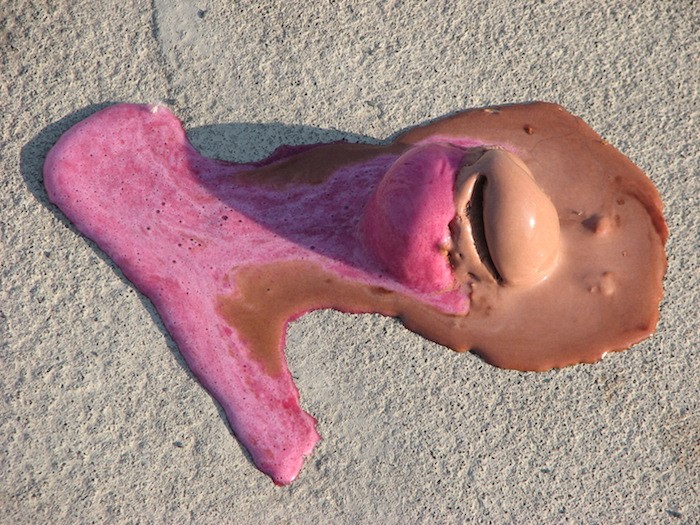Maybe I shouldn’t admit this.
But this morning, I laid in bed, and I cried.
I know I shouldn’t have let some guy’s embarrassingly cliché behavior drive me to this point. But it was the morning after fitful sleep, during which I finally started to accept what just did not make sense: he played me; it felt so genuine but must not have been; he’s gone, and I probably shouldn’t want him to come back.
I did not have the stamina to stop the tears.
Instinct told me to hold on to hope, to claim a buoy. After all, hope propels me to work every day, where I teach English in a Baltimore City high school. Hope sustains my belief, even when it seems illogical, that every one of the tough-but-tender teenagers who enter my classroom (my “lovelies,” as I call them) will make it. Hope shoulders my faith that they will not only pass, but prevail. Prosper. Know peace. Statistics caution hardships for my lovelies, but my hope resists these odds. Hope is strength.
But this morning, apprehension halted my instinct to hope. Believing in the unlikely fuels, and sometimes forces, the endurance I need to last professionally; however, I now know that applying that same hope to my personal life can be hazardous.
It wasn’t until last year, when my five-and-a-half-year relationship came undone—“a divorce without the paperwork,” a friend called it—that I first saw the potential perils of hope. In those tearful weeks that followed, whenever I bemoaned the break-up to loved ones, I would inevitably say something along the lines of, “But who knows what’s going to happen? Maybe we’ll end up together eventually.” Stating this possibility, improbable as it was, steadied me.
Once, though, after hearing this refrain, my mom sighed. “Sweetie, I just don’t want you to hang on to hope.” And suddenly, hope—the persistent denial of a dismal reality, the refusal to accept bleakness—did not feel like an act of defiant grace. If my most fierce protector warned me against clinging to it, I could not consider hope to be noble; rather, it felt naïve.
So, this morning, while mourning the end of this would-have-been relationship, I intentionally stifled my instinct to hope. I chose awareness, not anticipation. But this challenged, dispirited and alarmed me; forgoing hope meant rejecting optimism and focusing solely on grim facts.
At best, he changed his mind. At worst, he lied.
Either way, his promises, our plans—lunch dates over pizza, foot rubs after long runs, summer nights on boats—were mere casualties of intentions unfulfilled. He was gone, without an explanation. Without a goodbye. Absorbing this without the aegis of hope, I felt sentenced to see only shadows.
As an antidote, I called a friend on the way to school. Maybe he could help me alter my perspective.
I whined into the phone. He listened carefully and responded simply: “You need to not care about people ’til they care about you.”
“Um, do you know me?” I shrieked. “I can’t do that! I mean, do you know what I do for a living?!” Of course he knew, and also understood: in urban education, caring—when it seems like no one else does, when you risk getting cussed out just for saying good morning, when it means learning heartbreaking truths about these children’s lives—is crucial. My job requires that I care as fervently as I hope.
I knew his remark was not about my lovelies, but even before he could distinguish between caring professionally and personally, clarity seized me: I will never withhold care for someone, just as I cannot completely abandon hope.
Another friend once pointed out, correctly, that hoping for yourself can hurt more than hoping for others; but for me, it also hurts not to hope at all. It is impractical, and maybe even impossible, to separate my professional and personal personas so severely; how can I depend on hope in one, but deny it in the other?
So this morning, after much resistance, I ultimately decided to hope—carefully. My mom was (of course) right: clinging blindly to hope can actually make things worse. And I agree with my friends: I should try to protect myself a bit more. But because optimism is part of who I am, and actually a characteristic of which I am proud, I do not want to completely renounce it. Hope, then, is an elixir I will let simmer, and use often, though not indiscriminately.
The poignant awareness of this new relationship’s demise still saddened me as I continued my commute to school. However, I soon reached the bridge that reminds me, daily, of hope: a physical structure created solely to connect places and people. Crossing the bridge, I breathed in deeply, squinted against the morning’s rising sun, and allowed myself to hope—for my lovelies to whom I was driving, but also for myself.
Author: Kerry Graham
Editor: Caroline Beaton
Photo: Wikimedia










Read 3 comments and reply